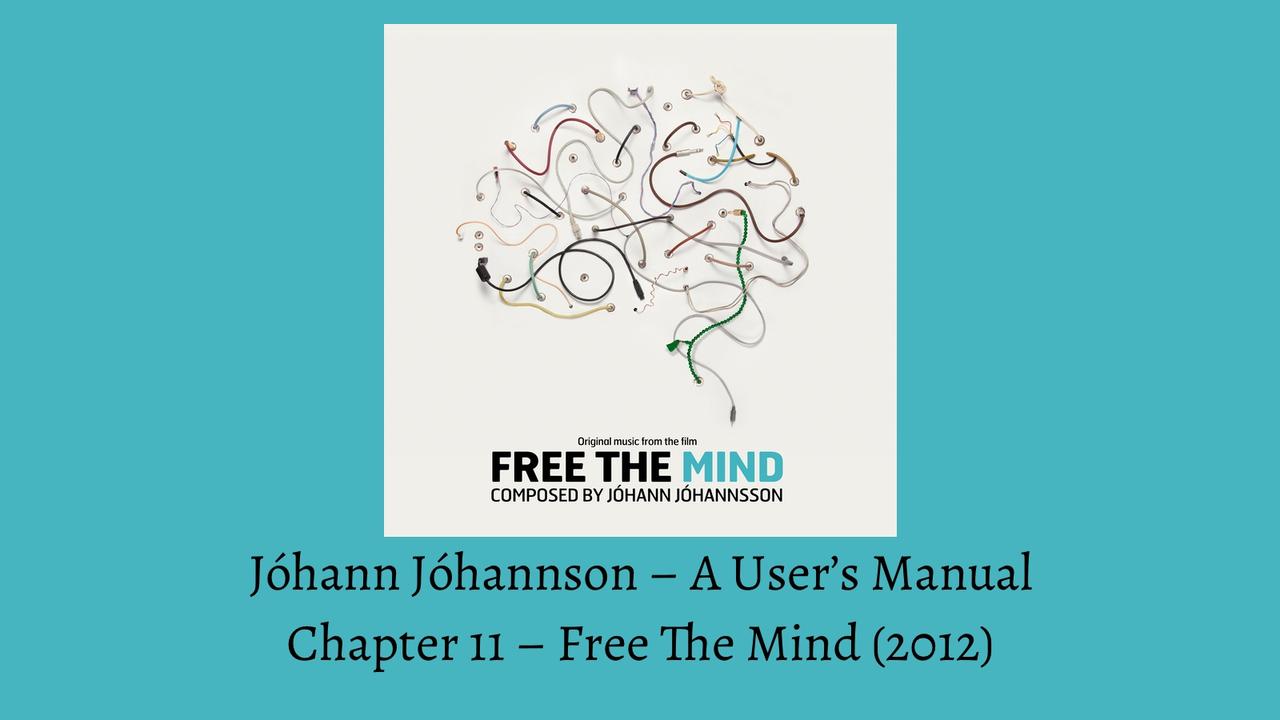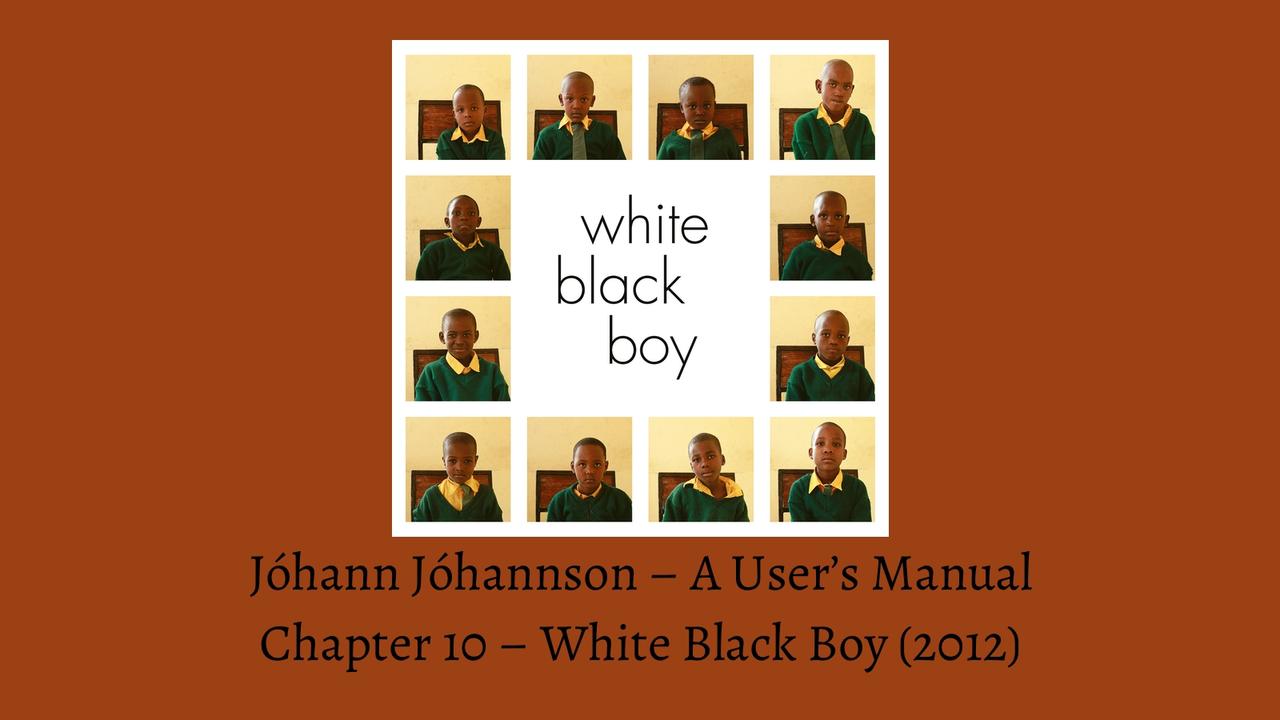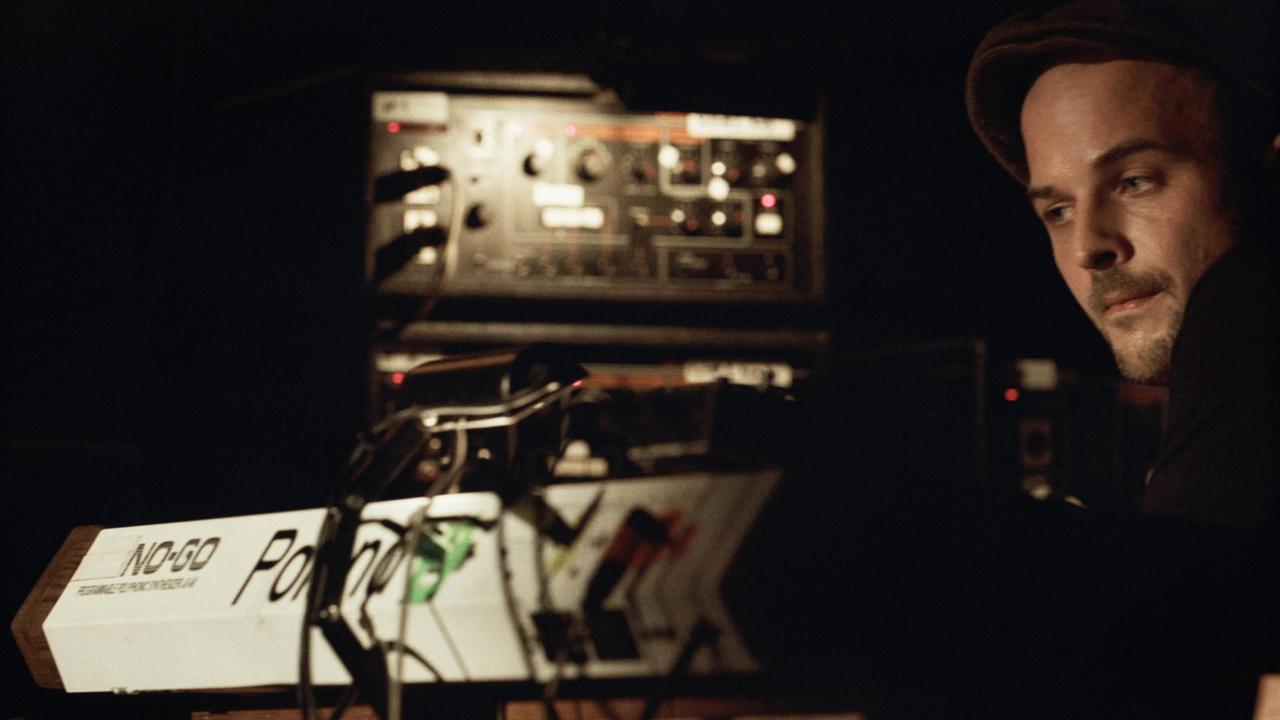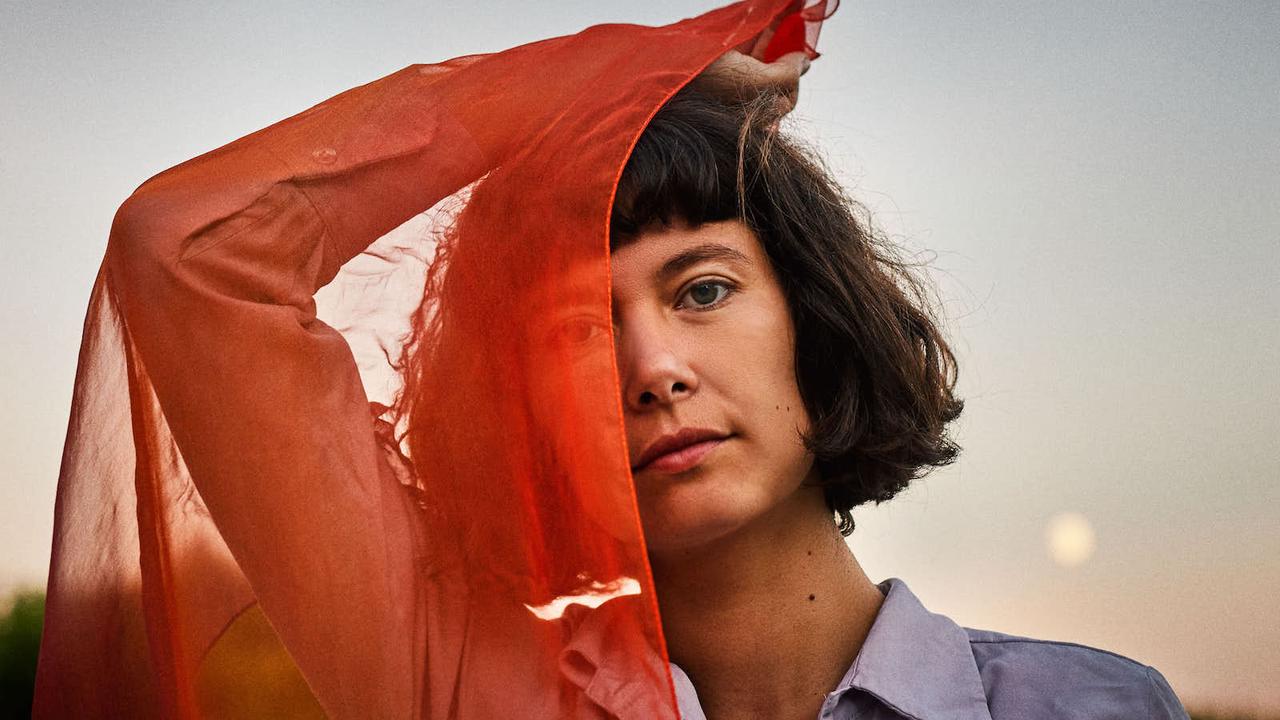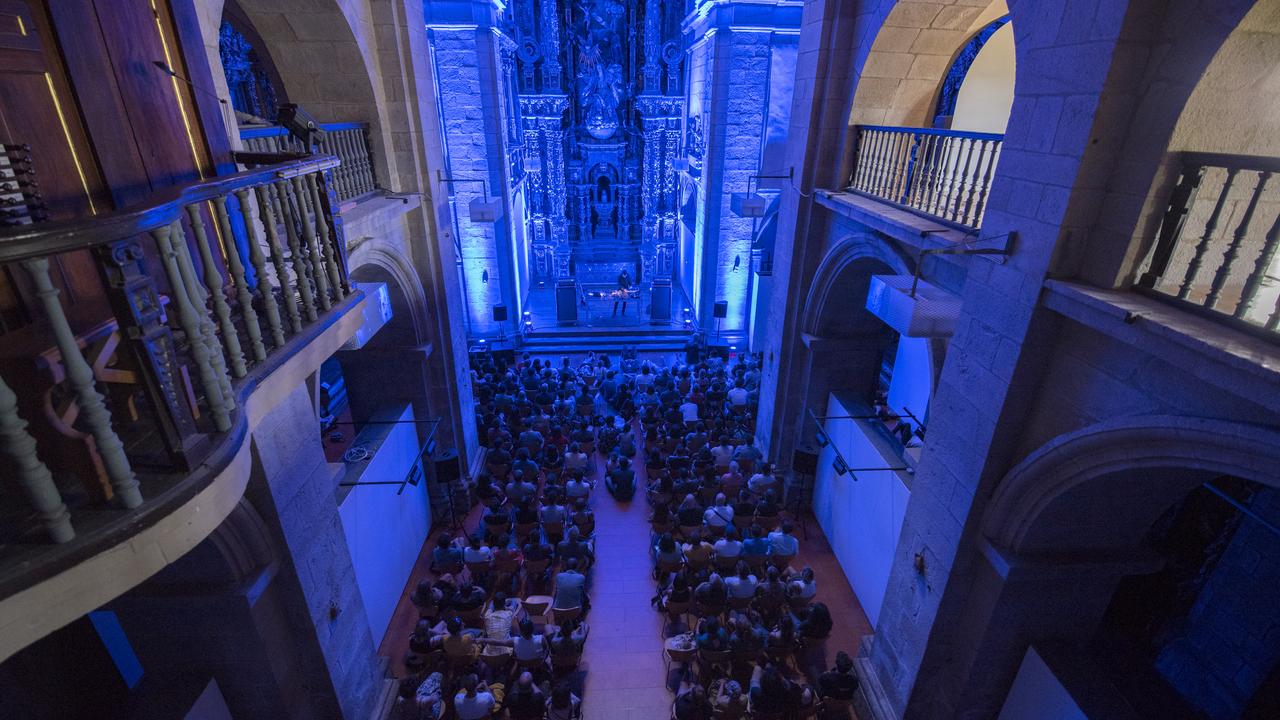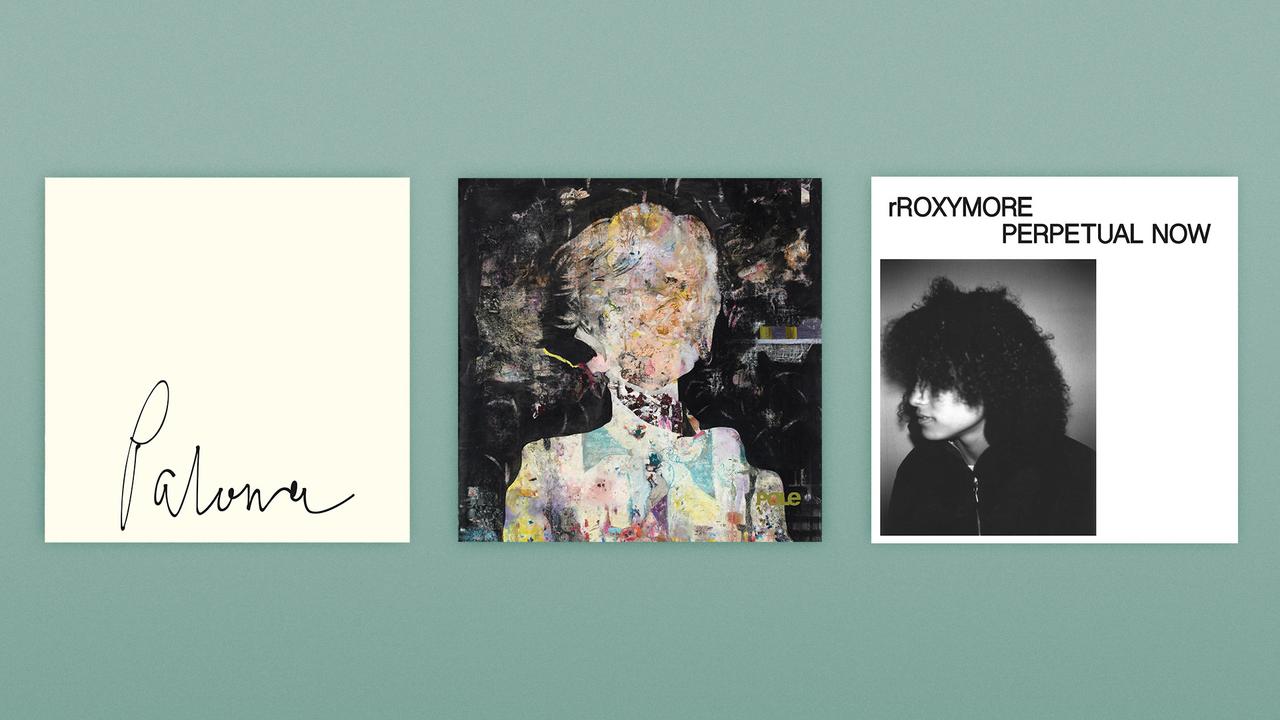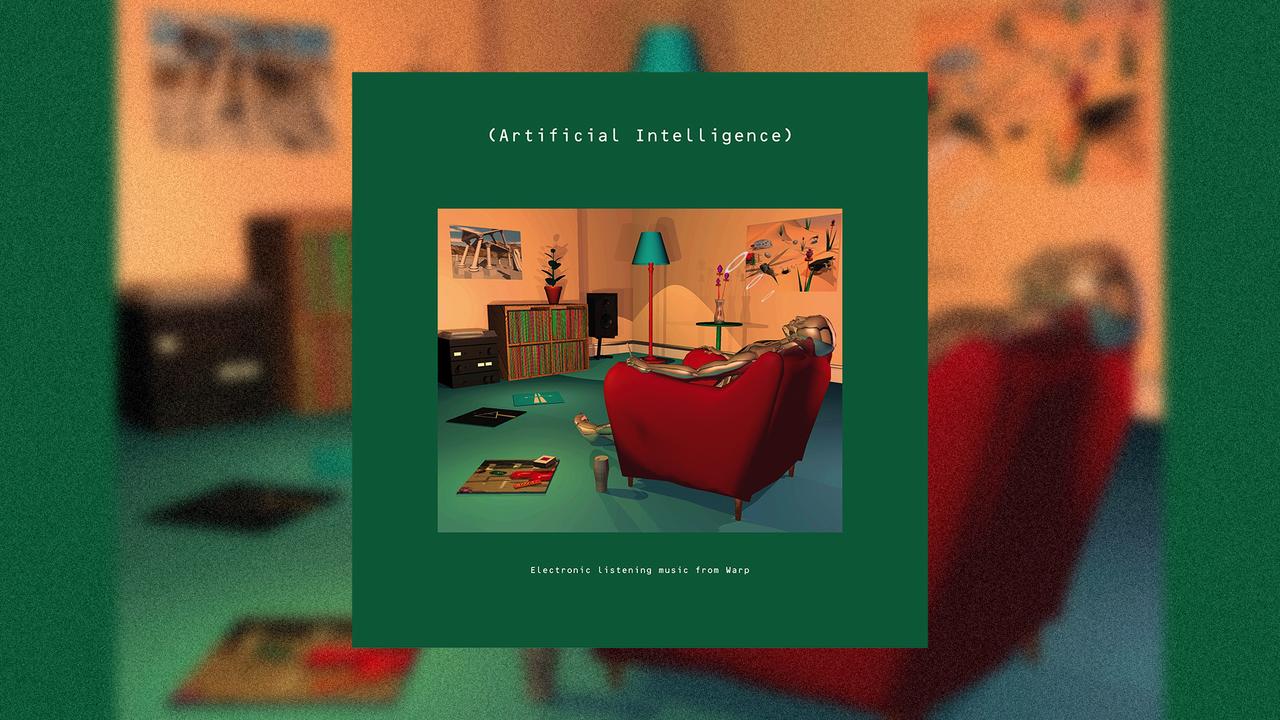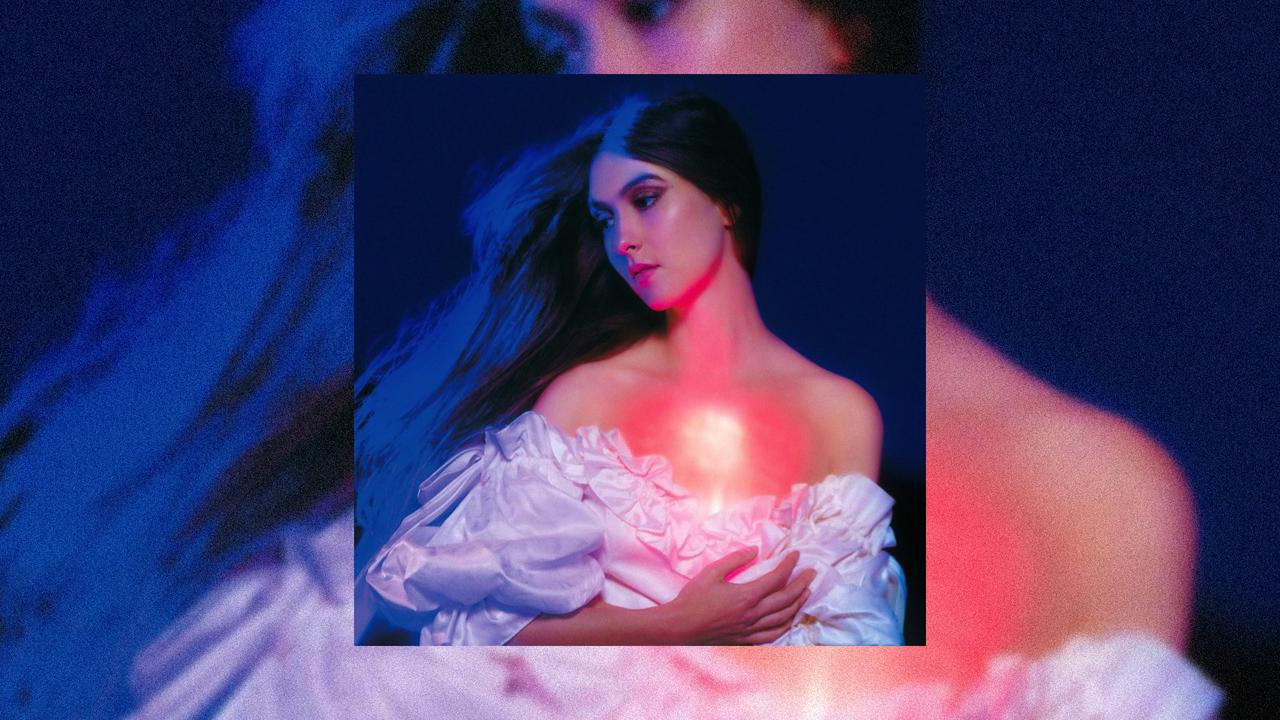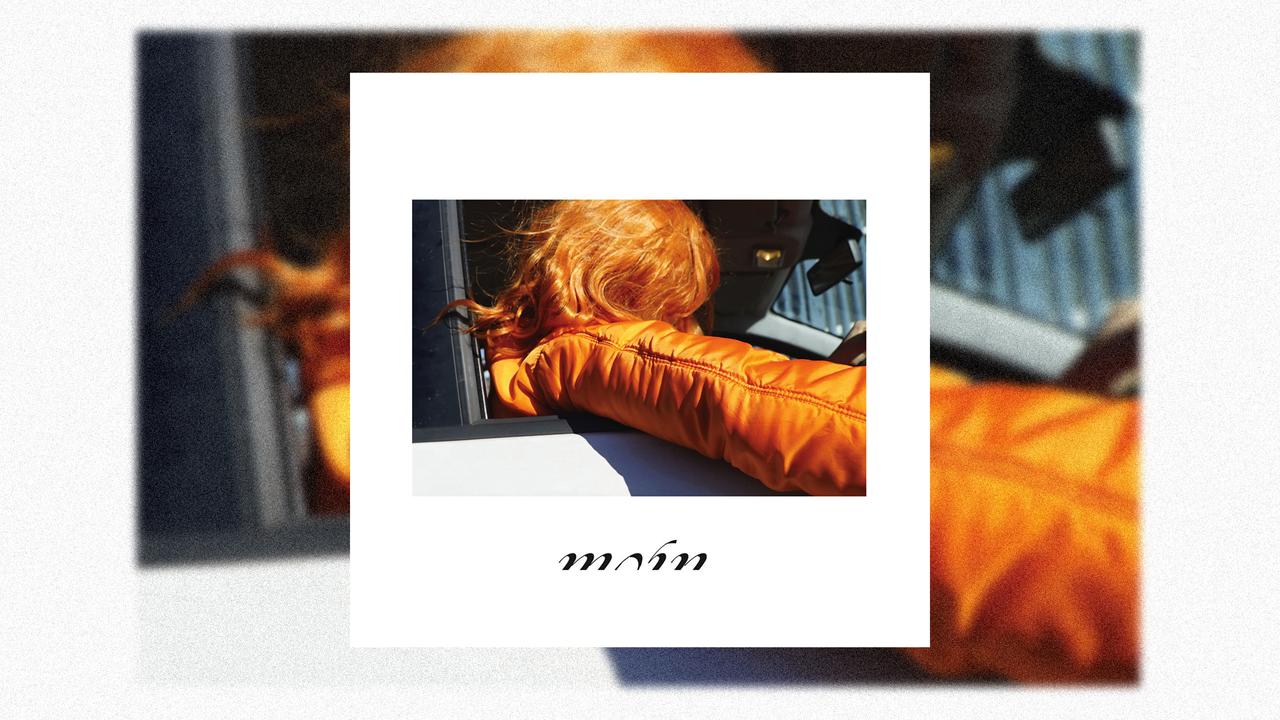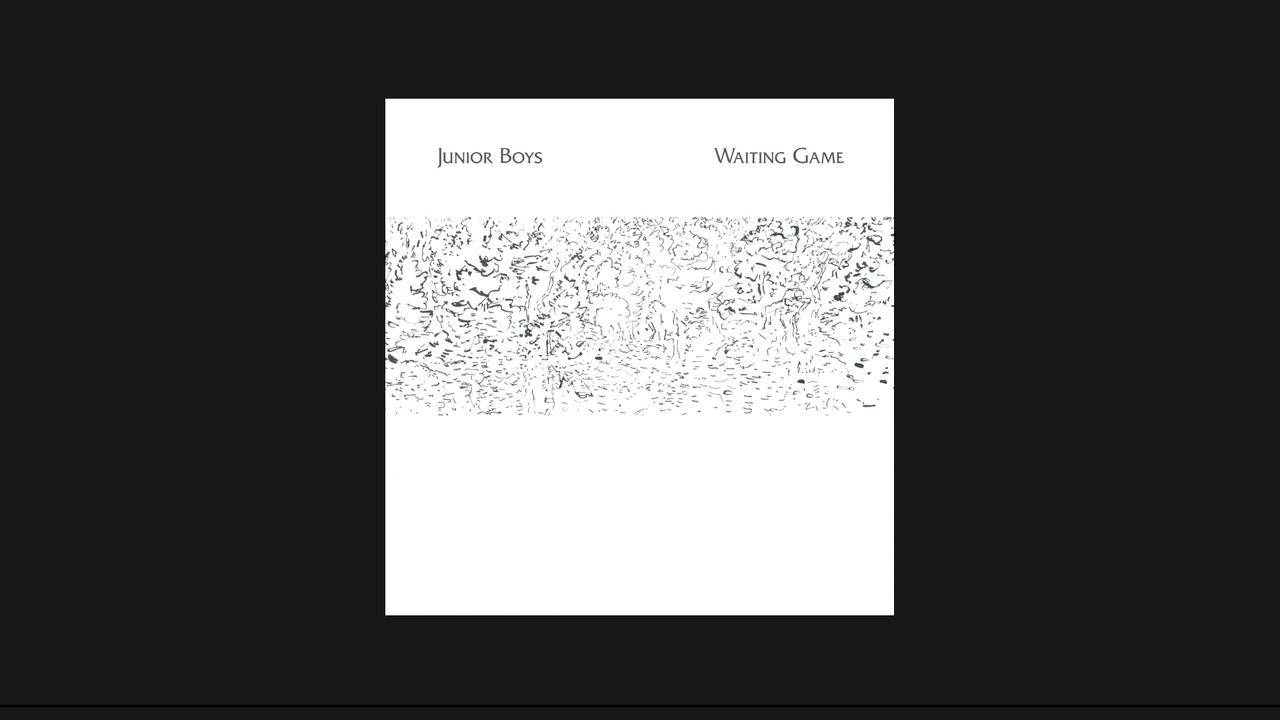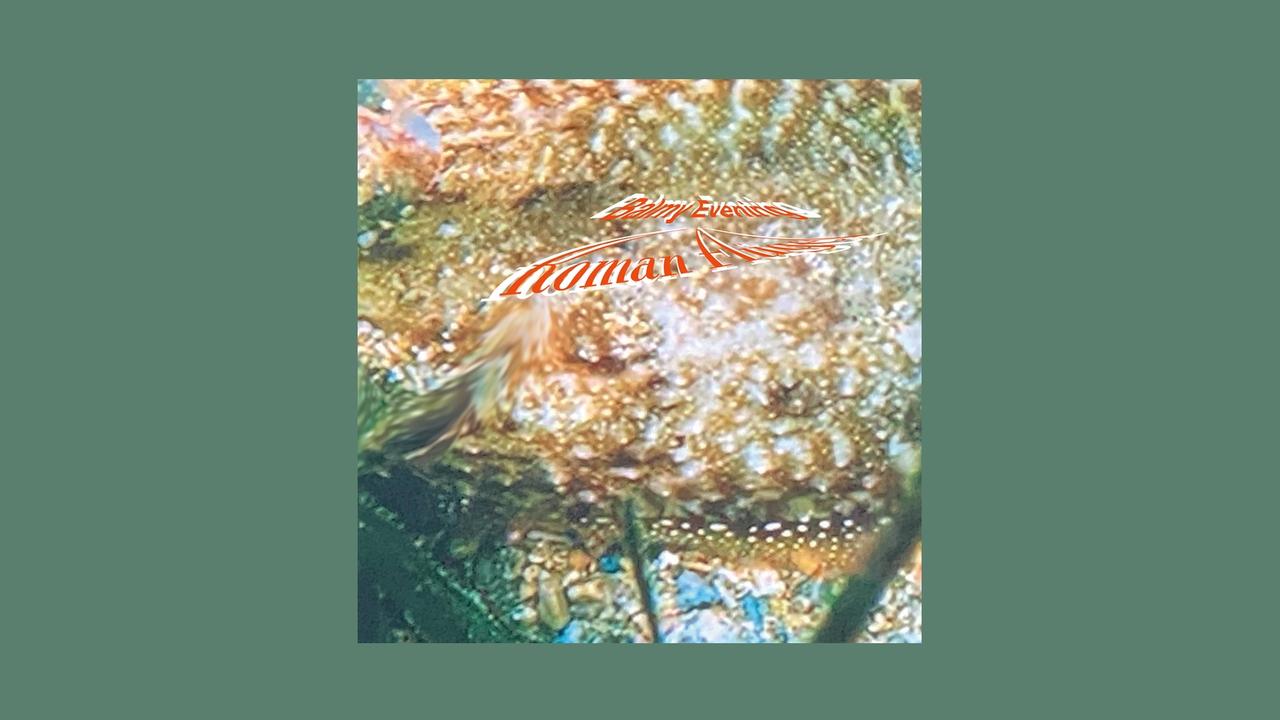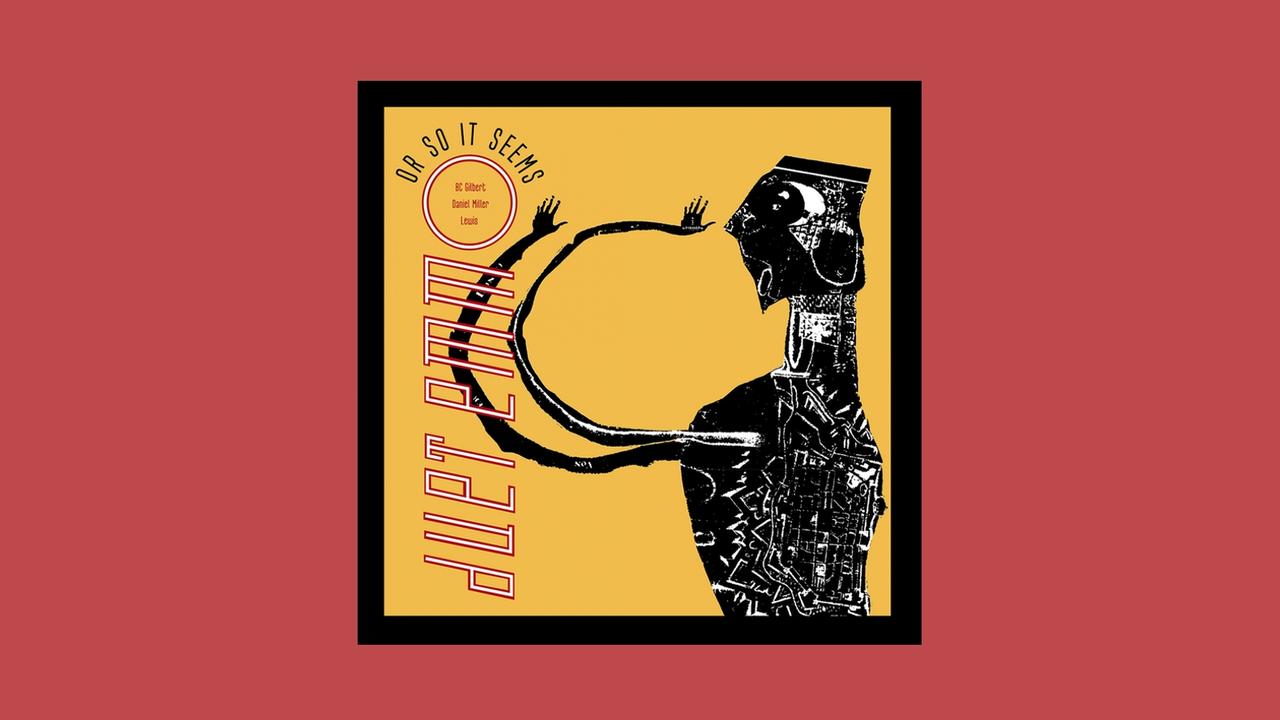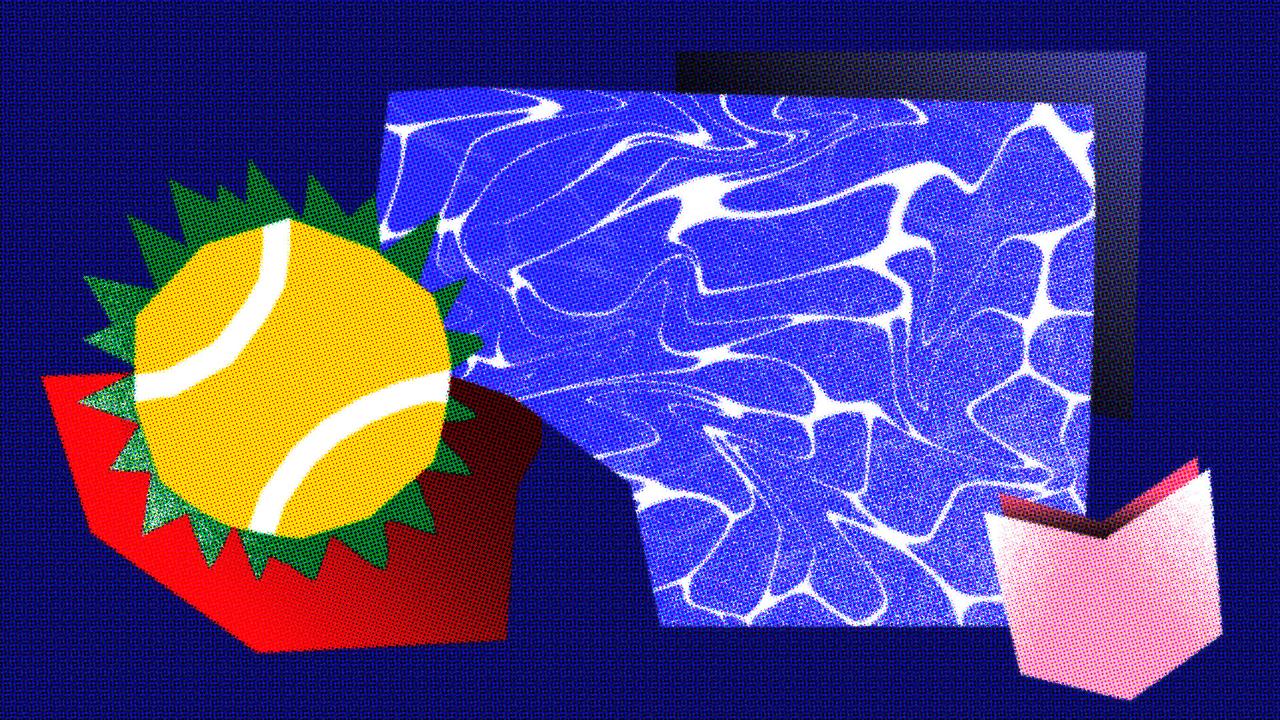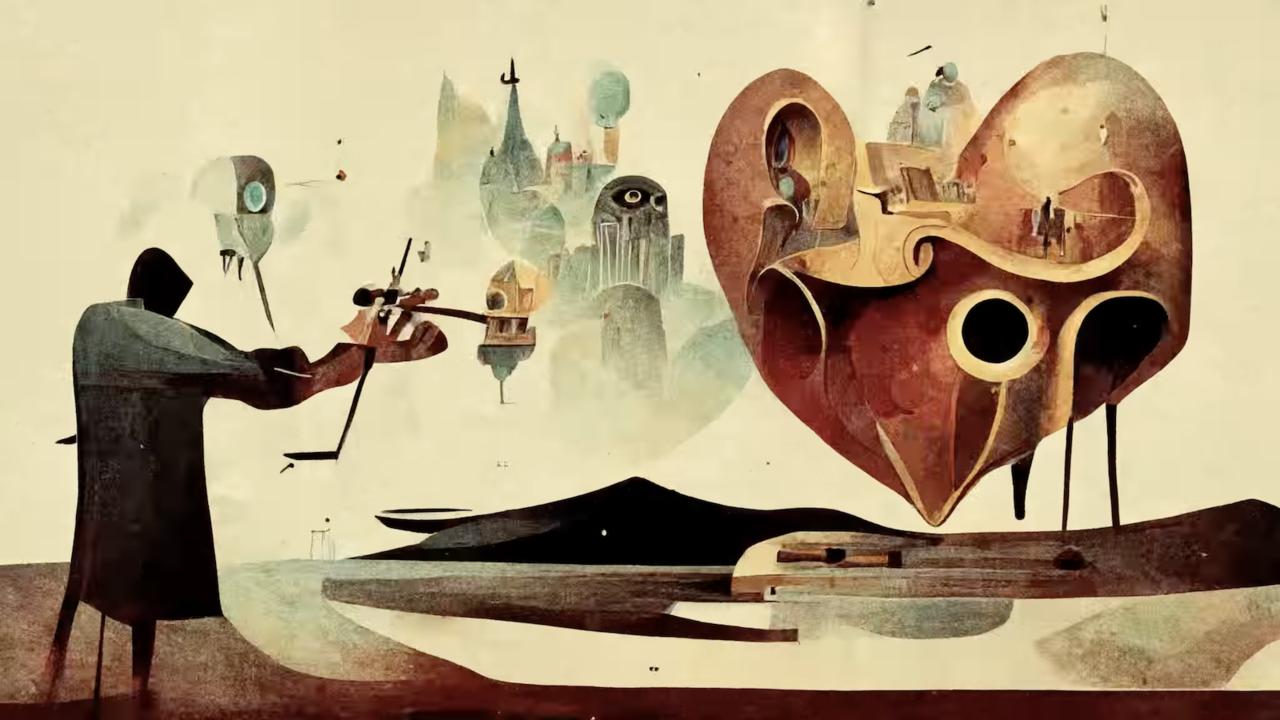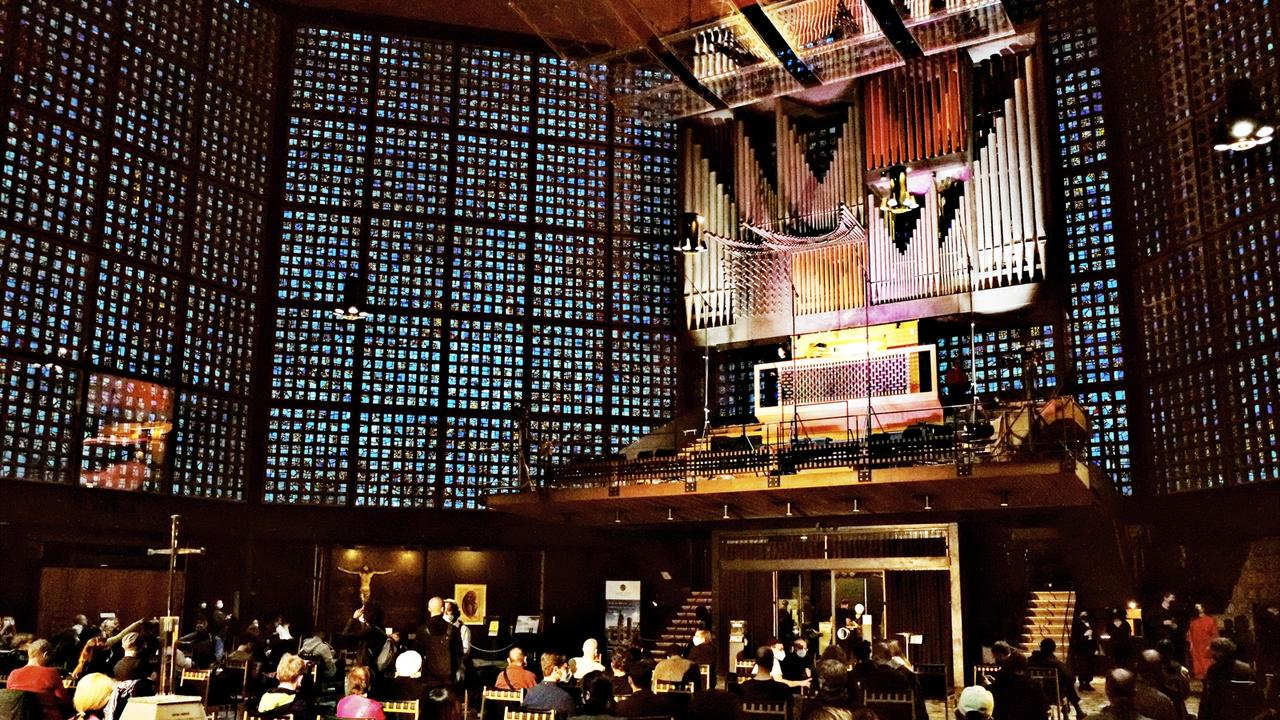Jóhann Jóhannsson – A User’s ManualChapter 12 – Prisoners (2013) – English
28.11.2022 • Sounds – Conversation: Kristoffer Cornils, Thaddeus Herrmann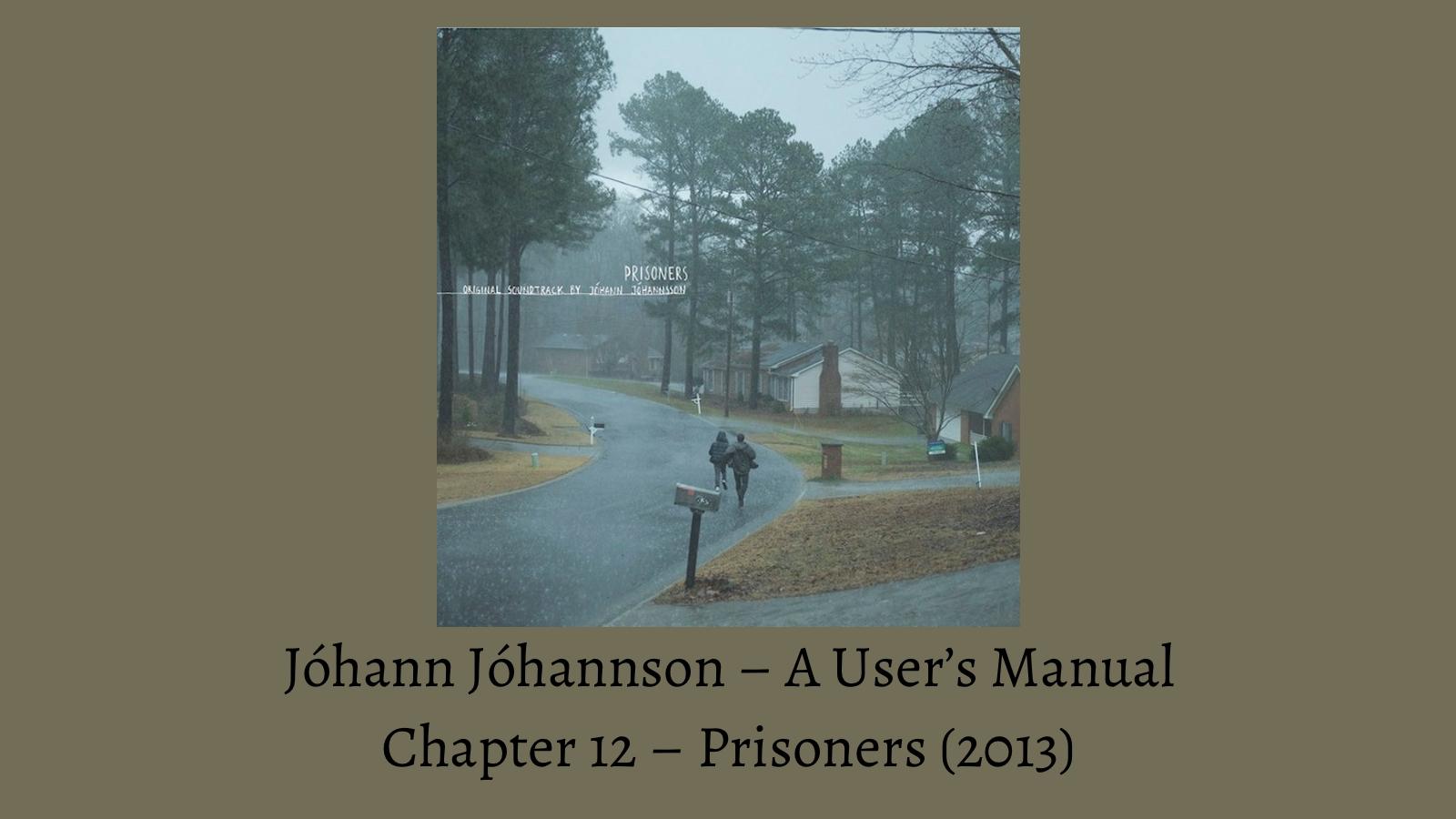
Jóhann Jóhannsson has released well over 20 albums over the course of his career. Who knows how much material that could be released posthumously is still gathering dust at this point in time. Kristoffer Cornils and Thaddeus Herrmann regularly review the composer's work—chronologically, album by album. In the eleventh episode, they discuss "Prisoners" from 2013, the soundtrack to the film of the same name by Denis Villeneuve.
Deutsche Version? Hier klicken.
The disappearance of two girls in a US town at Thanksgiving forms the narrative framework of Denis Villeneuve's "Prisoners". The scenery? Autumnal and beautiful, though often dark and rainy. The disappearances? Just a striking hook to bring the social friction in such a supposed idyll to the surface from below. Cinematographically, we find ourselves somewhere between the settings of "Twin Peaks" (though not quite as overwhelming) and "Wayward Pines" (less claustrophobic) or "Eureka" (without the comedic sci-fi absurdity). The plot escalates, it gets messy. And Jóhann Jóhannsson orchestrates.
Thaddi: The review of this Soundtrack was one of the first texts I ever wrote for this medium. I had no idea about the film, confined myself entirely to the music and soundtrack issues per se. Short sketches, the minimal modulations of set musical themes, etc. We have discussed this over and over again in this series. And within this very series, with "Prisoners" at the latest, we have arrived at Jóhann Jóhannsson's "soundtrack only" phase. Of course with a different quality. Jóhannsson had done film music before, but this score catapulted him perhaps for the first time really into Hollywood's attention. It is his first collaboration with Canadian director Denis Villeneuve. The latter - thanks in no small part to Jóhannsson's music - subsequently went through the directorial roof. And ultimately cost the composer his life. Cue "Blade Runner". But I'm getting ahead of myself. The film opened in US cinemas in September 2013, in Germany a month later. The soundtrack was released on 24 December of the same year. Tragic and beautiful at the same time. And I confess that I haven't listened to the music since my review. What a mistake! The "light" themes touch me more than ever. As I write this intro, it's 20 November 2022, it's snowing outside my window, the heater is banging, it's starting to get dark again, the windows are closed, the silence without music is almost unbearable. And here comes Jóhann with, at first glance, very simple mechanics. Light, dark, hopeful, grumbling. I haven't seen the film in its entirety until today. How are things going on your Subbass Adagio front, Kristoffer?
Kristoffer: Adagio is perhaps only correct in terms of the tempo; in keeping with the subject of the film, there is very little that sounds comfortable and cosy on "Prisoners" - at least to my ears. But I can't deny the sub-bass at all. Thanks to it, I experienced the soundtrack for the first time, and I deliberately don't say "heard": without knowing the soundtrack in advance, I watched the film and was squeezed to bed by the powerful bass every ten minutes or so. Yesterday I listened to the first 30 minutes again - that is, one fifth of the total time, it is a rather slow film - and was amazed at how sparingly Jóhannsson's score is used in it. Partially, in small but impressive bursts of mood, it is woven into the silence. It almost seemed to me as if the director and composer were still approaching each other somewhat cautiously, as if they had not yet achieved the perfect synthesis of film and sound. This is an advantage insofar as the music as such works much better than, for example, the score of "Sicario", for me the prime example of the final integration of Villeneuve's and Jóhannsson's visual and sonic languages - music that doesn't really makes sense without the film, and vice versa. Nevertheless, "Prisoners" has an air of duty: many of the motifs and tricks of these 16 pieces seem already familiar, and indeed we already know "Escape" from "And in the Endless Pause There Came the Sound of Bees", although self-quotations were otherwise not Jóhannsson's thing at all. But because the grumbling drones already announce the sound design masterpiece "Arrival", I don't consider "Prisoners" a mere recourse - but rather a work on the threshold from one period to the next in his oeuvre. But now I'm playing the historian again! Let's focus on the atmosphere instead: It very consistently takes on the dark, grey tones of the film. But you hear brightness in it. What do you mean by that?
Thaddi: Yes, I have to explain that. Even if the light motifs sound anything but cheerful and chained to major scales, they trigger those exact feelings in me. Melancholy has power. I simply like the silence of this soundtrack. Despite all the grumbling and the orchestral glory that shines through again and again, everything fits into a chamber music framework of modesty. I've been playing the album practically non-stop for the last few days. In preparation, in the service of memory. However, the album quickly turned into a reliable companion in the radical onset of winter in the city as well. Whenever the environment changes because of the weather, in the best case gets quieter, my heart takes a leap and automatically goes into adjustment mode. In fact, this music helps me do that. Accordingly, it is far from my intention to kickstart an all-encompassing exegesis here. In the sometimes minimal differences in the musical language of Jóhannsson's soundtracks and its iterative changes and further developments, "Prisoners" is indeed a highlight in his oeuvre that seems quiet at first, but quickly becomes all the louder. Above all - apart from the general decision as to whether this music tells us something or not - it's about getting involved in the moment. For me, that works wonderfully. It's interesting that you touch on the idea of Jóhannsson re-using some of his ideas. I didn't notice it explicitly on this album, I'll listen to "Escape" once more straight after. However, as someone who sometimes still lives in the future, I had a similar association for the next episode in our series - the soundtrack to "McCanick". Music that I almost perceive as a cover version of his own work. But we'll do that another time.
Kristoffer: I wouldn't have noticed it had I not consulted the inlet of the gruesome vinyl pressing - for once, the Discogs comments are right on the money - preparing for this chat. Of course, those wonderfully tremulous cello notes on "Escape" are very memorable, but ad hoc I wouldn't have been able to place them. I want to stick to the credits, pout down my historian jacket and dress up as a psychoanalyst for a moment: You mentioned orchestral glory on the one hand, but throw the term chamber music into the ring on the other. These are two very different statements about how you perceive the music. In fact, apart from Jóhannsson himself, only a few musicians worked on this album. At most, one could speak of an ensemble: Thomas Bloch on such unusual instruments as Cristal Baschet and Ondes Martenot, Erik Knive Skodvin alias Svarte Greiner on double bass, cello, guitar and electronics, Thomas Bowes on solo violin and last but definitely not least Caroline Dale and Hildur Guðnadóttir on solo cello. In fact, Erik once told me in a beer-fuelled night that he had been in the studio with Jóhannsson for a few days, recorded a few things and recognised absolutely nothing of it when the record came out. I strongly suspect that he was talking about "Prisoners". The composer himself contributed electronics, percussion, organ and guitar, but he probably worked mainly as a sound collagist, combining disparate recordings of different people and instruments into a soundtrack. I completely agree with you that this soundtrack has the intimacy of chamber music and sometimes the grandeur and glory of orchestral music. I couldn't find out more about its creation, but the little information I have only increases my respect for this work: it makes a lot out of very little. Have we ever heard Jóhannsson make music in such a meticulous and yet comprehensive way? I don't think so! And that contributes a lot to its complexity.
Thaddi: Kristoffer, you know me. I tend to juggle these terms in freestyle mode. I promise to better prepare myself in future and to do my definitional homework! At the same time, I do hope that the people out there understand me. I second your analysis of input vs. output, but am much more interested in finding out why - and this is the point I keep thinking about without coming to a conclusive explanation - the interplay between light and dark on this soundtrack works so well for me, while on other albums it prevents me from fully engaging with the music. Making the most out of almost nothing: This fits well with the film, or rather the setting. The small town with its supposedly structural clarity can't prevent things from escalating, from taking a turn for the worse. That may seem like a strange bridge I'm building in my mind, but it makes sense for me. for me. In the end, I am once again interested in the personal aspects. I want to know how you feel about these tracks, sketches and compositions, Kristoffer. Let's take off the armour of music journalism. Let's talk about feelings! To paraphrase the TV series "Newsroom": I want a real moment.
Kristoffer: But that's exactly my point: I think that Jóhannsson uses a certain method here - it doesn't really matter who or how many people were involved - which, at least to my ears, results in something different, compared to his previous releases and soundtracks. He himself is the orchestra here, instead of conducting one. This way, he can express himself even more directly and indeed more flexibly in the context of such a commissioned work than on previous works that are musically similar, but again different in sound and emotion. Which is why I don't recognise anything sketchy in it. On the contrary, everything seems to me to be very formulated here. Nevertheless, or perhaps because of that, I feel very much the same way about "Prisoners" as you do. What a fantastic rediscovery this is! Precisely because Jóhannsson can play even more freely on the emotional keyboard here, which he already had a solid command of before, but on which he now develops something like his own voice, with which he can evoke a very special mood. As I said, for me "Prisoners" is a soundtrack on the threshold, opening an new of a new chapter in Jóhannsson's oeuvre. I am curious to see how much we will hear from "McCanick"; for me, Jóhannsson is primarily beginning to weave threads in the direction of "Sicario" and "Arrival" here.
Thaddi: I have so many questions about "McCanick". thoughts, too. Let's listen to soundtracks together again soon please. Agreed?
Kristoffer: That's the one we'll cover next. And until we'll get to "Orphée" we have a lot of commissioned works in this series coming up - but also one or two matters of the heart with a film connection on the agenda. But as far as "Prisoners" is concerned, I think we do agree: a career highlight that deserves more attention; a great soundtrack that also functions as an album and opens up a lot of space with few means, in which all the more feelings can unfold - yes?
Thaddi: Yes and YES!
